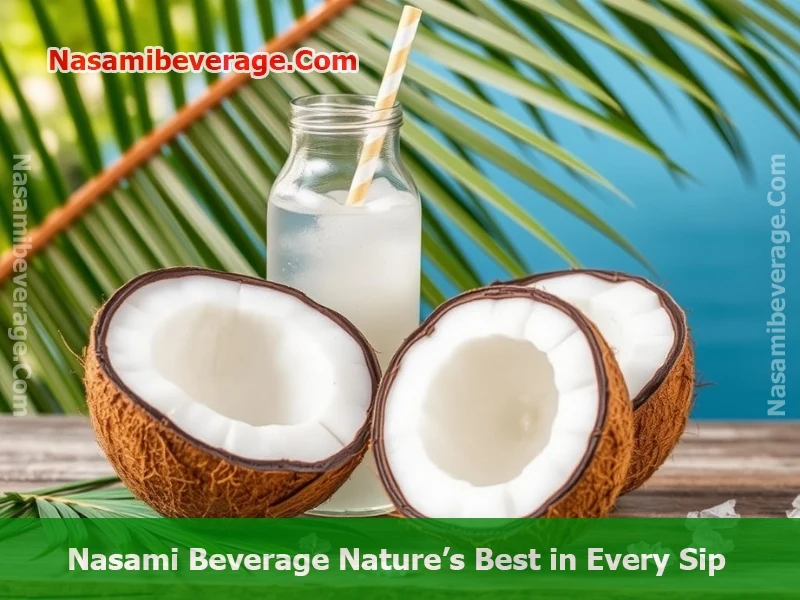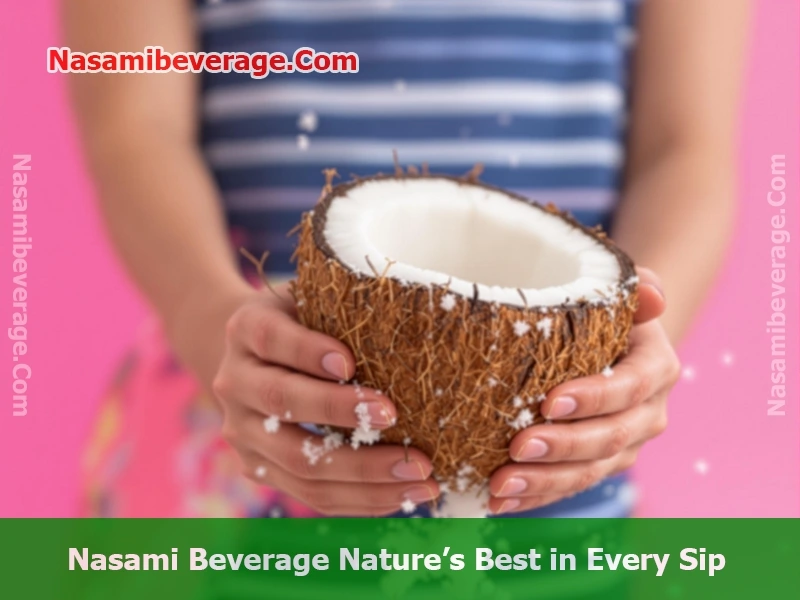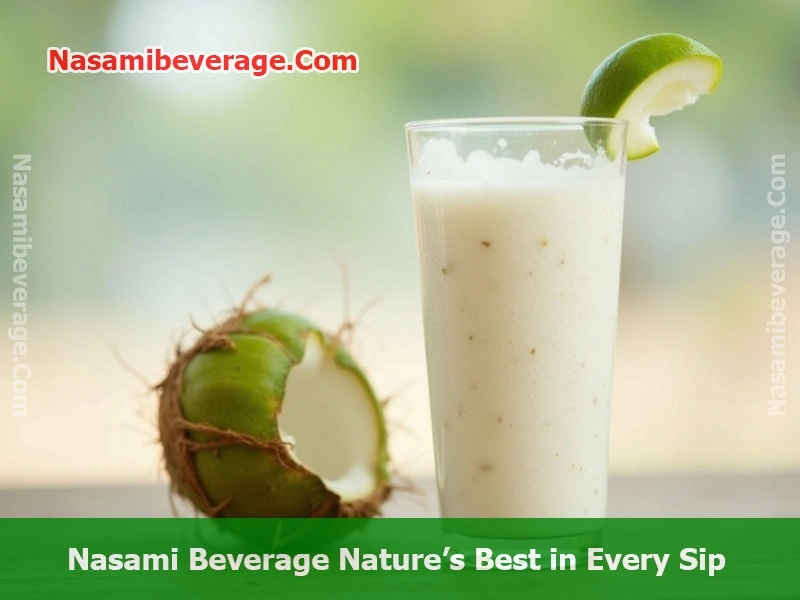Wondering about the coconut water sugar content? While a typical serving has 9-12 grams of natural sugar, many commercial brands add extra sweeteners. It is essential to read the nutrition label to know exactly what you’re drinking.
How much sugar is really in coconut water? A nutritional breakdown
Let’s get straight to the point. An average 8-ounce (about 240ml) serving of fresh, unsweetened coconut water contains roughly 9 to 12 grams of sugar. The key word here is unsweetened. This sugar is naturally occurring, not added in a factory.
Natural vs. added sugar – What’s the difference?
The sugars found naturally in coconut water are primarily glucose, sucrose, and fructose. These are intrinsic to the fruit and come packaged with beneficial nutrients like potassium, magnesium, and electrolytes.

Your body metabolizes these natural sugars differently than it does refined or added sugars, such as the high fructose corn syrup found in many sodas and sweetened juices.
These added sugars offer no nutritional benefits and are linked to numerous health issues when consumed in excess.
Many commercial coconut water brands unfortunately add extra sugar or fruit purees, such as in popular flavored varieties like pineapples in coconut water, which can sometimes double the total sugar content. This is why reading the label is not just a suggestion; it is essential.
How a coconut’s age affects its sweetness
Not all coconuts are created equal. The sugar content can vary depending on the fruit’s maturity. Younger, green coconuts, which are typically the source for commercial coconut water, tend to have a lower sugar concentration.
As the coconut matures, some of its natural sugars convert into the fat that becomes the coconut meat, altering the taste and nutritional profile of the water inside.
The best low-sugar coconut water brands for health-conscious drinkers
Navigating the beverage aisle can be tricky. A product labeled “natural” isn’t always free from added sugars. A truly low sugar coconut water is one that is 100% pure, with no additives.
Spotting hidden sugars on the label
To ensure you’re getting the real deal, always check the ingredients list. It should say one thing: “coconut water.” If you see “sugar,” “cane sugar,” “fruit concentrate,” or “natural flavors,” you are looking at a sweetened beverage, not pure coconut water.
The nutritional panel’s “Added Sugars” line, now mandatory in the US and other regions, is your best tool for spotting these.
Brand showdown – Vita Coco vs. Harmless Harvest
When it comes to popular brands in the US, UK, and Canada, a few stand out. Let’s compare two giants:

- Vita Coco (Original): This is one of the most accessible brands. Their flagship product contains coconut water and less than 1% fruit sugar. A standard 330ml serving has around 15 grams of total sugar. They do offer a “Pressed” version that is higher in calories and sugar.
- Harmless Harvest (Organic): Famous for its pink hue and commitment to organic sourcing, this brand is a fan favorite. It contains no added sugar. An 8.75-ounce (258ml) serving has about 15 grams of total sugar, all naturally occurring. Its sugar content can be slightly higher due to the specific type of Thai coconuts used.
- ZICO (Natural): Another major player, ZICO’s natural coconut water contains only coconut water from concentrate and also has no sugar added.
Is coconut water’s sugar content healthy? Benefits & risks
So, is the sugar in coconut water a cause for concern? For most people, the answer is no, provided it’s consumed in moderation and is free from added sugars. The health benefits often outweigh the natural sugar content.
Its main claim to fame is its impressive electrolyte profile. This raises the common question of does coconut water hydrate better than water, and thanks to its electrolytes, it is an exceptional choice for rehydration after strenuous exercise, during hot weather, or when recovering from illness.
Can people with diabetes drink coconut water?
For individuals with diabetes, the conversation is more nuanced. Pure, unsweetened coconut water has a relatively low glycemic index, meaning it’s less likely to cause a rapid spike in blood sugar compared to other sweet drinks.

However, it is not calorie free or sugar free. It must be accounted for in a diabetic’s daily carbohydrate intake. Portion control is critical, and it is always best to consult with a healthcare provider or registered dietitian before adding it to your diet.
Coconut water for weight management and fitness
If you’re looking to manage your weight, coconut water can be a smart swap. Replacing high calorie sodas, juices, or sugary sports drinks can significantly reduce your weekly intake of both calories and added sugar. The specific coconut water calories for a 500ml serving are much lower than a comparable soda.
For athletes, its natural sugars and electrolytes make it an effective recovery drink, and knowing the best time to drink coconut water is often post-workout to replenish spent energy stores (glycogen) in your muscles and restore fluid balance.
Ultimately, 100% pure coconut water is a healthy, hydrating beverage with a moderate amount of natural sugar. It is far superior to sugary sodas and juices. The key is mindfulness. Always read the label to avoid added sugars, practice portion control, and enjoy it as one part of a balanced, healthy lifestyle.
Frequently asked questions
How much sugar is in 100% pure coconut water?
A typical 8-ounce (240ml) serving of 100% pure, unsweetened coconut water contains between 9 and 12 grams of naturally occurring sugar.
Is the sugar in coconut water better for you than regular sugar?
Yes. The natural sugars in coconut water come with beneficial nutrients like potassium and magnesium. Added sugar, like table sugar or high fructose corn syrup, provides “empty calories” with no nutritional value.
Which brand of coconut water has the least sugar?
This can vary, but brands that offer “no sugar added” products are your best bet. Always compare the “Total Sugars” line on the nutrition labels of brands like Vita Coco, ZICO, and 365 by Whole Foods Market to find the lowest option available to you.
Does coconut water raise blood sugar levels?
Because it contains natural sugars, coconut water can raise blood sugar levels. However, its low glycemic index means it does so more slowly than high-sugar beverages. People with diabetes should consume it in moderation and monitor their levels.
Can I drink coconut water every day?
For most people, drinking a serving of unsweetened coconut water every day is perfectly healthy and can be a great way to stay hydrated. As with any food or drink, moderation is key.
Navigating the world of coconut water is less about demonizing its natural sugars and more about championing your own awareness.
While pure coconut water is a fantastic source of electrolytes, the key takeaway is that the beverage aisle is filled with options where added sugars lurk behind healthy-sounding claims.
Ultimately, the most powerful shift you can make is from a passive drinker to a proactive consumer who always checks the label first. This simple habit is the true secret to ensuring what you drink genuinely supports your health goals.
Ready to put this into practice? Share your go-to brand of coconut water in the comments below-and tell everyone what its nutrition label reveals!



